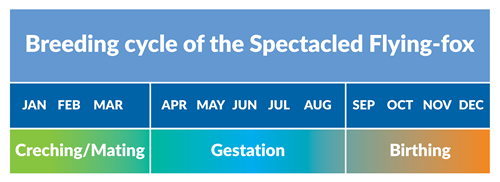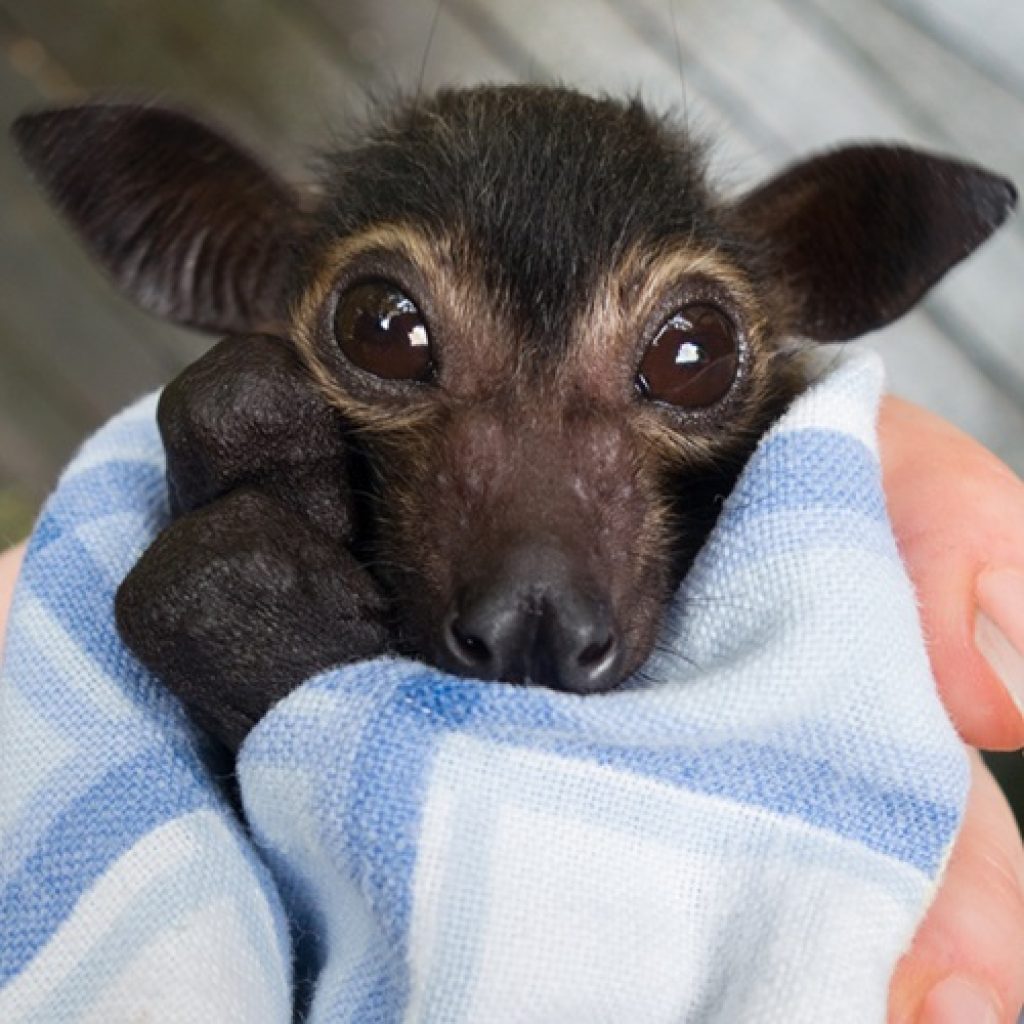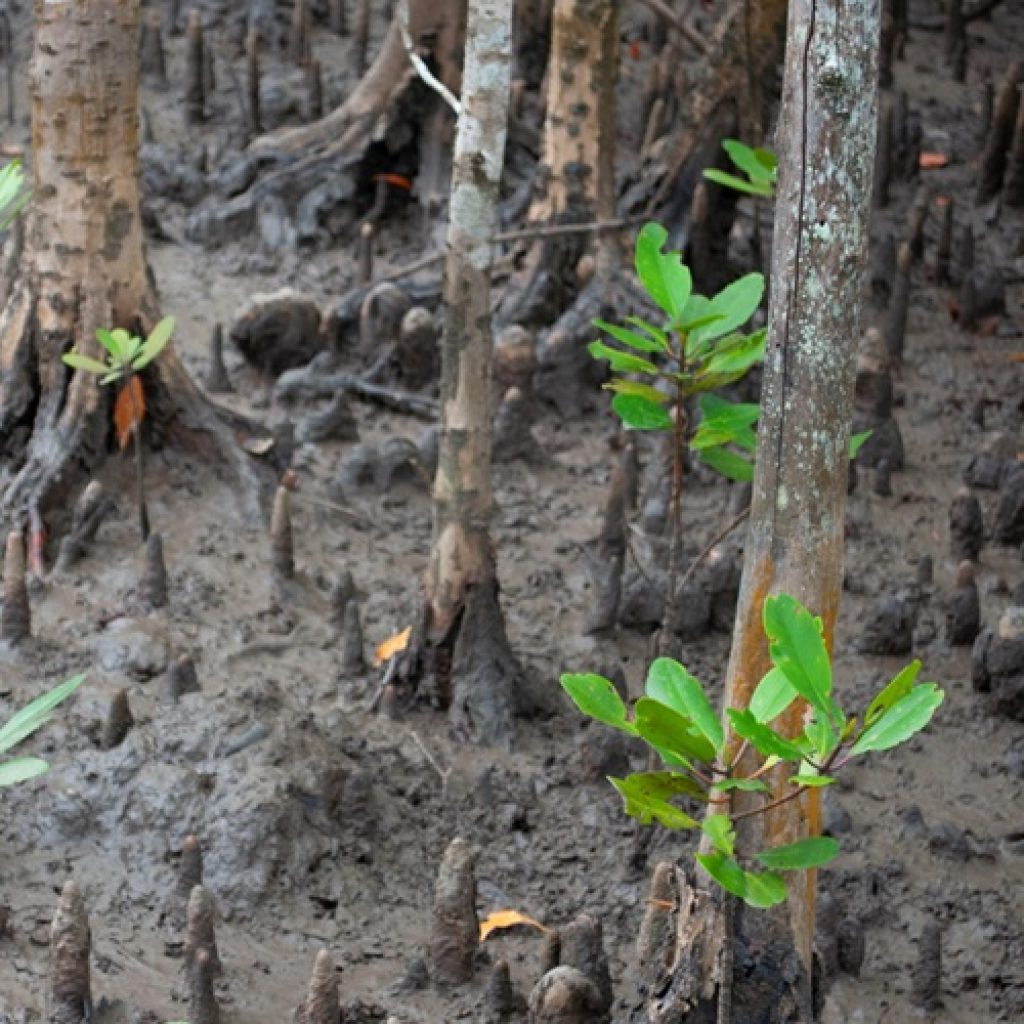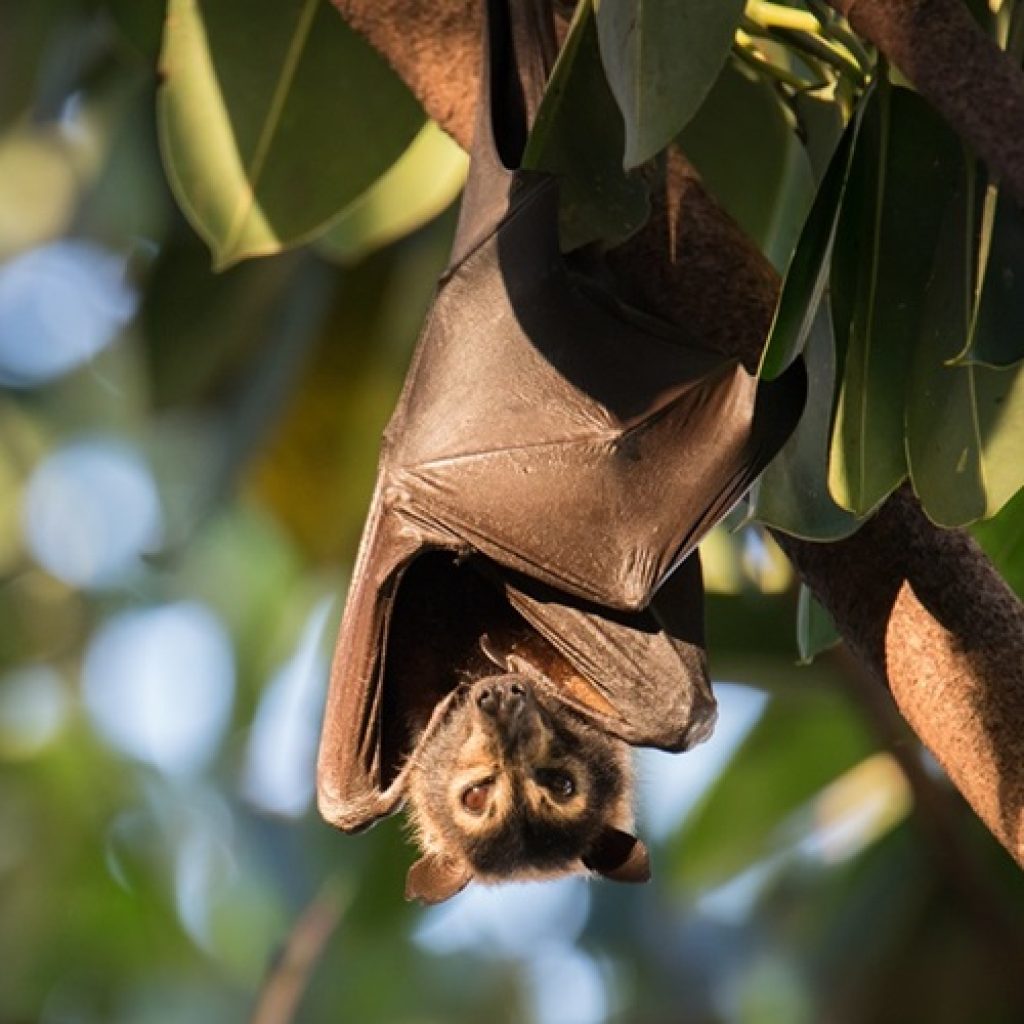IT’S BABY BAT SEASON
SPECTACLED FLYING-FOXES ARE GIVING BIRTH TO PUPS
15 SEPTEMBER 2025
If you’ve walked past a flying-fox camp lately, you may have noticed a lot of chatter in the treetops. It’s baby season for Spectacled Flying-foxes and they are congregating and settling into ‘maternity roosts’ to give birth and raise their young.
By next Easter the pups will be independent and ready to start flying off.

What’s happening during the baby season?
• Mothers and pups – Newborns cling to their mother’s belly for the first 3–6 weeks, feeding exclusively on her milk. At around three months, they begin flying and start to wean onto fruit and nectar, though they continue to rely on their mother’s milk for up to five or six months.
• Flying-fox crèches – At around six weeks old, pups are left together in the roost (like a day-care centre) while their mothers head out to feed at night. Each mother recognises her pup by its unique call — which is why higher-pitched trills can often be heard in parts of a roost.
• Learning to fly – By three months, young flying-foxes can manage short flights, and by five to six months they are able to feed on their own.
• A vulnerable stage – During their first three months, pups are unable to move themselves away from danger. If disturbed or stressed, mothers may abandon their young. For this reason, local councils avoid management actions during this critical period.
Why baby season matters
Spectacled Flying-foxes are listed as endangered, and they only have one pup a year, so every pup counts towards the recovery of their populations. These animals are critical for the health of our rainforests – they pollinate trees and disperse seeds over long distances, helping shape rainforest diversity and regeneration.
Baby bat season is a vulnerable time. Young pups can be injured if disturbed or stressed, and entire colonies can be disrupted by human interference.

How you can help
• Keep your distance: If you’re near a flying fox roost, admire them from afar. Noise, smoke, and tree disturbances can cause mothers to drop or abandon pups.
• Protect roost trees: Large shady trees provide essential roosting space for both mothers and their young.
• If you own a farm or property: Look into wildlife friendly fencing and fruit tree netting to help prevent entanglements.
If you find a sick, injured, or dead bat, avoid touching it—call FNQ Wildlife Rescue on (07) 4053 4467.
Thanks for giving a flying-fox…a chance!
RELATED NEWS
It’s Baby Bat Season
 admin@terrain
admin@terrain
 September 15, 2025
September 15, 2025
Mangrove Buffers
 admin@terrain
admin@terrain
 September 8, 2025
September 8, 2025
Spectacled Flying-foxes – FAQS
 admin@terrain
admin@terrain
 August 28, 2025
August 28, 2025






























